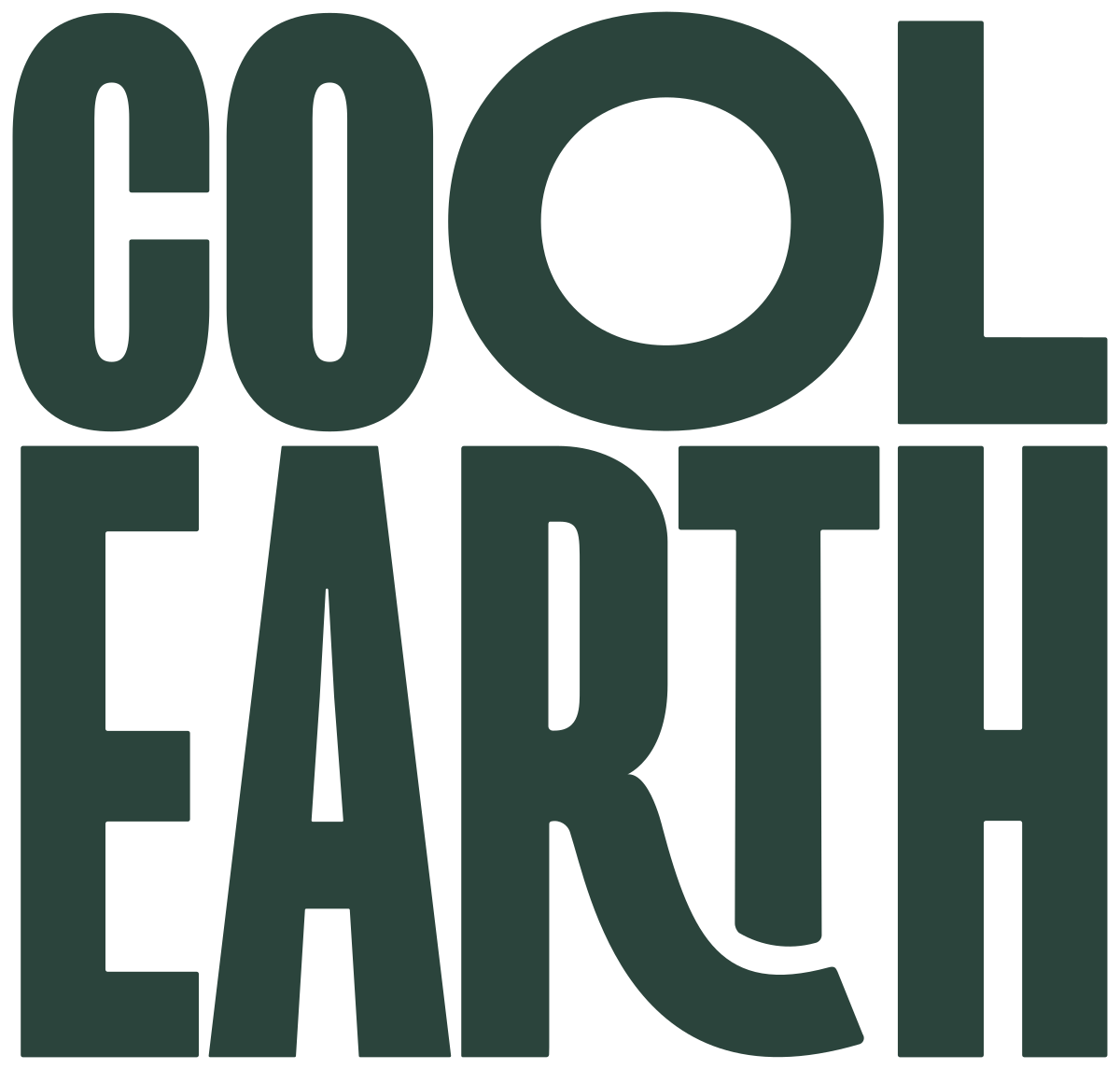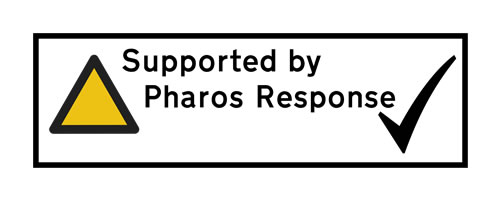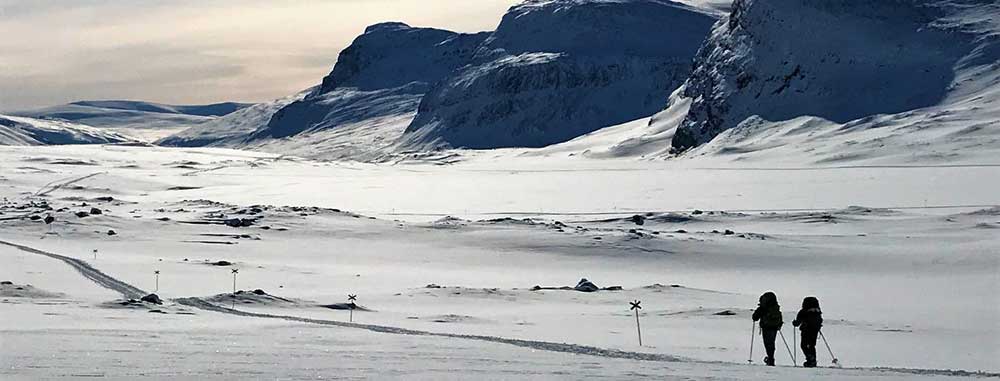
We believe that with great travel, comes even greater responsibility
Tourism is one of the most important and largest industries on the planet. It employs more people worldwide than any other, with millions of families relying on tourism for their daily needs. At Adventurous Ewe we believe that our type of small scale, positive impact tourism can bring benefits to many communities, help preserve the environments we travel to see, and provide real and positive social exchanges. Plus we are dedicated with our commitment to positive actions taking place now through Our Climate Emergency Plan and signatory of the Glasgow Declaration, a commitment to transparent climate action that brings the travel industry into alignment with the urgent need to half carbon emissions by 2030.
Since our very first days as a tour operator, responsible business has been at the heart of what we do. Adventurous Ewe is committed not just to treading lightly, but to making a real difference – by supporting local communities, wildlife conservation projects and the environment. We’re all about operating in a responsible manner and incorporating principles of sustainable tourism and development into the way we provide our travellers with real life experiences. These values are more than just words; they’re ingrained in the culture and daily operations of the Adventurous Ewe team and on every trip.
With one of our office staff, Sue Blunt, having previously worked in animal welfare and conservation projects in several countries, we are heavily involved and experienced with animal welfare projects and pride ourselves in not offering such activities as elephant and ostrich rides. We have also had first-hand experience of the Desert Lion Conservation Project in Namibia with Dr Philip Stander. The focus of the project is to collect important base-line ecological data on the lion population and to study their behaviour, biology and adaptation to survive in the harsh environment. Then use this information to collaborate with other conservation bodies in the quest to find a solution to human-lion conflict, to elevate the tourism value of lions, and to contribute to the conservation of the species. We also have a strong stance on child protection and do not offer orphanage visits in our itineraries.
Our commitment to being a responsible business doesn’t end there. Adventurous Ewe has identified eight of 17 United Nations Sustainable Development Goals (SDGs) that we can contribute to most to as a tourism business. By focusing on these goals, we ensure a strong commitment to areas where our business can make the most difference and be a company with a purpose.

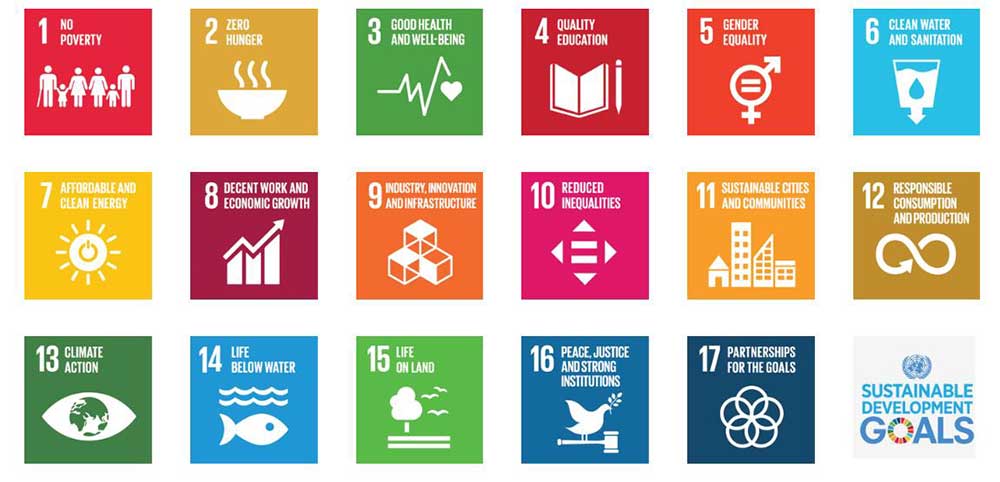
If you have any feedback on our approach we’d love to hear from you at info@adventurousewe.co.uk.
Responsible travel is about the attitude you take and the choices you make whilst travelling – to respect and benefit the local people, their cultures, communities, economies and the environment.
While it’s up to all of us to be conscientious globetrotting individuals, Adventurous Ewe makes it easier by building responsible travel fundamentals into each and every one of our trips. When you hit the road with us, you’ll leave lighter footprints, invest your travel dollars in local communities, show respect and curiosity for different cultures and traditions, and experience genuine connections with the people you meet along the way.
Our style of travel involves:
- New overseas destinations selected on their sustainable tourism, environmental and conservation projects in place in order to further support their valuable work
- Small groups having less impact on local communities and environments
- Real life experiences which promote cross-cultural understanding
- Staying in smaller-scale locally owned accommodation (wherever possible)
- Use of homestay style accommodation to support local communities at the grass roots whilst also providing a more meaningful travel experience
- Buying locally produced food and drink, and purchasing souvenirs from local artisans
- We are careful to ensure that local staff and operators receive a fair rate for their services
- We endeavour to ensure that our practices help in the environmental conservation of the areas we visit and minimise plastic waste (wherever possible)
- We provide Water-To-Go bottles to our adventurers for all our overseas expeditions, which are often to developing countries, to help eliminate our plastic-footprint
- Careful management of limited energy and water resources
- We encourage our own staff to take an active interest in responsible and sustainable tourism
- We provide our adventurers with advice and guidelines on how to respect the social, cultural and religious beliefs of local communities
- Avoid the exploitation of the vulnerable – including women, children, animals and endangered species.

Adventurous Ewe Responsible Travel Policy
Our Responsible Travel Policy outlines our commitment to preserving the environment, supporting local communities, protecting the vulnerable and giving back to the places we travel. All our trip leaders, suppliers and staff are trained on these principles, and are core to us delivering sustainable, experience-rich travel.
Please see below our Responsible Travel Policy:
1. Respecting destinations and local cultures
Adventurous Ewe promotes positive and meaningful exchanges between our business, our travellers and the local places we visit. We do this by:
- Respecting different cultures in all destinations we travel to
- Respecting local religions, religious places and rituals
- Observing and respecting local customs and etiquette
- Encouraging local interaction and understanding of the local way of life
- Emphasising appropriate dress standards
- Asking permission before photographing
- Forbidding the use of illegal drugs on our trips
- Portraying destinations fairly and respectfully in our communications and marketing material.
2. Supporting local people and economies
We work to maximise the benefits generated by tourism for local economies and communities. We do this by:
- Employing predominantly local staff and leaders within our operational teams (either our own Destination Management Companies, or suppliers who employ locals)
- Designing and operating trips to feature local suppliers or suppliers who directly benefit the local community and economy
- Encouraging our travellers to purchase from local suppliers and use local service providers, as well as supporting social enterprises, local trade, arts and crafts
- Purchasing sustainable and locally produced goods and services rather than imported products
- Ensuring we have fair employment practices in place and using suppliers who have similar employment practices and are in line with our Porter Protection Policy & Guides
- Involving the local community in decision making
- Paying relevant taxes
- Issuing each of our suppliers with our Supplier Code of Conduct to influence our supply chain to operate in a more sustainable way
- Not engaging in any form of bribery, corruption or fraudulent activities.
3. Preserving the environment
We aim to contribute to the preservation of natural and built environments in the destinations we visit, and to reduce the negative impacts our operations may have on the environment. We do this by minimising the use of resources (energy, water, waste) in our office, on our trips and in the destinations we visit.
In our office
- Implementing energy conservation initiatives (such as more efficient office equipment and installing velux windows to allow more natural light and reduce the use of power)
- Chief Ewe, Jim, has built our office furniture and storage all from reclaimed wood
- Ensuring better waste management by using ‘avoid, reuse, reduce, recycle’ principles
- Adopting better purchasing practices (eg. sourcing products with post-consumer recycled content)
On our trips
- Business member and supporter of the Snowdonia Society
- Using local transport where safe, reliable and feasible, and when this is not feasible, using private, locally owned transport
- Ensuring our vehicles/fleets are well maintained and fuel-efficient
- Encouraging travellers to use Water-To-Go bottles to eliminate our plastic footprint
- Encouraging travellers to minimise their waste and water usage on the trip
- Encouraging our suppliers to adopt more sustainable practices or choosing suppliers who already have greener practices in place
- Eating at local eateries (limiting food miles)
- Shopping at local markets offering local produce, items, souvenirs etc.
In the destinations we visit
- Understanding the environmental issues in destinations and minimising our direct impact
- Ensuring our adventurers preserve and do not contaminate the local water supply
- Observing all national and marine park visitor rules
- Using a ‘leave no trace’ system of waste management in remote regions and national parks. We take out what we bring in.
- Using established or existing tracks and paths, particularly in desert, jungle and mountainous environments.
- Minimising the use of intrusive devices (such as lights) and keeping noise to a minimum at culturally significant sites and other sensitive places
- Discouraging our adventurers from touching fragile environments (eg. ancient rock paintings, particular wildlife, etc).
4. Protecting vulnerable people including women, minorities and children
We protect and look after people – in particular, our most vulnerable – by observing basic human rights principles as outlined in the Universal Declaration of Human Rights, and ensuring we are promoting among our staff, adventurers, local communities and suppliers/business partners, their right to be treated with dignity, equality, freedom and respect.
How we protect women and minorities:
We promote equality through:
- Supporting enterprises run or staffed by women and/or minorities where available (such as local co-operatives, education initiatives etc.)
- Seeking women and minorities to be represented in decision-making that affects their local communities where possible.
- Ensuring we are not taking part in any activities or using suppliers/services that discriminate against, exploit or traffic women and/or minority groups.
How we protect children:
We protect children (those 17 years of age and under) from all forms of abuse:
- We do not employ children, nor do we use suppliers or patron places that allow children to perform work that is illegal or likely to jeopardise the child’s health, safety or morals
- We put in place strong measures to ensure that Adventurous Ewe’s respective suppliers, travellers and partners are not involved in the exploitation of children, including training relevant employees/leaders on child protection and raising awareness among our adventurers on how to report incidents of child exploitation
- We do not visit children’s shelters or orphanages on our itineraries or on press/media trips.
5. Protecting vulnerable wildlife
We oppose any exploitative or illegal practices and those that have a negative impact on animal welfare. Adventurous Ewe opposes and discourages practices that are illegal and those that have a negative impact on animal protection and welfare. We also prohibit activities where travellers come into direct contact with animals meant for the wild, particularly where animals are touched or fed by visitors or are used as props for photo opportunities. We do not condone tourist activities that are unnatural to wildlife or endanger animals such as elephant or ostrich riding, unlicensed zoos, snake charming or any sanctuary that practices breeding for commercial trade.
Along with the ABTA, our vision is that all animals encountered while on an Adventurous Ewe expedition are treated humanely, with respect and in accordance with transparent and robust animal welfare standards that adhere to ABTA’s Five Freedoms:
- Freedom from hunger and thirst
- Freedom from discomfort
- Freedom from pain, injury and disease
- Freedom to express normal behaviour
- Freedom from fear and distress.
These are the minimum requirements, which we expect of our partners or suppliers whose business involves or impacts animals. We recognise that by working together with all stakeholders we have the greatest potential to achieve wide-reaching and long lasting positive change. Feel free to view our Animal Protection Policy.
We conduct appropriate research to ensure we do not promote, visit or participate in any activities that are failing to uphold the five freedoms listed above.
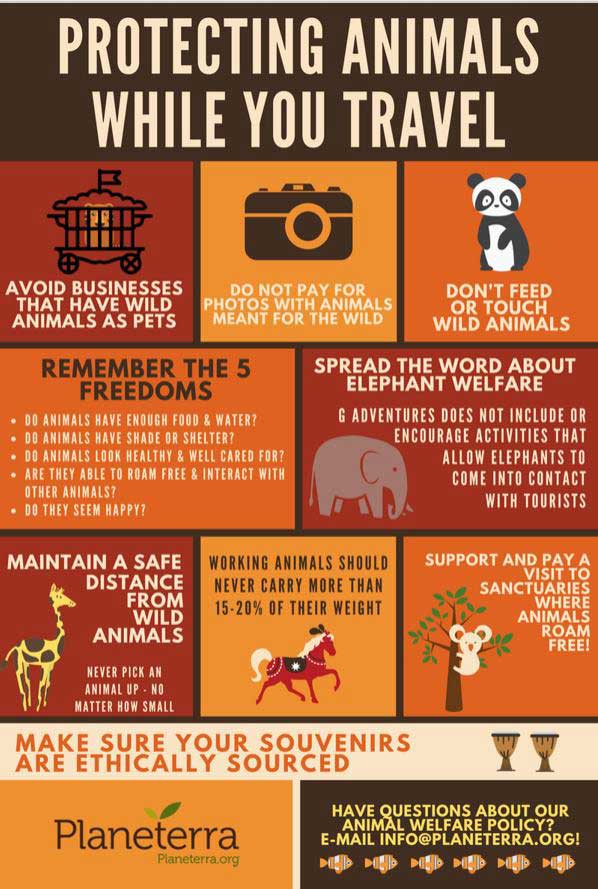
6. Avoid illegal souvenirs
Every day and when on our travels, we are faced with conscious choices about the purchases we make – and those purchases can have a profound impact on wildlife. While many wildlife and plant products are sold legally around the world, there is also a tremendous demand for illegal products made from endangered species. This demand feeds wildlife crime and devastates populations of elephants, marine turtles, rhinos, and tigers, among other species. With online platforms now providing global species at your fingertips, it has never been more important to remain vigilant and ask more questions about the purchases you are making.
Be aware of goods that may be manufactured through child labour and local laws regarding purchase and export of antiquities. Do not buy items derived from endangered / fragile species (flora and fauna). Be aware which goods are made from forbidden animals or plants. More often than not it is forbidden to take such souvenirs to Western countries, and you risk a hefty fine. As an example, here’s a list of products/materials that are banned: Coral along with starfish, shells and other items made from marine life, ivory and products made of ivory, cactuses or orchids, a shahtoosh (a traditional shawl woven in the Himalayas) as it is made from the wool of the Tibetan antelope – also known as the chiru – which is now classified as endangered as a result of hunting for its wool, Chinese medicines and plasters any products made of the skins of tortoises, crocodiles, snakes, big cats, butterflies and parrots.
Each year, Customs agents seize tourist souvenirs made from endangered species, which are protected by the United Nations Convention on International Trade in Endangered Species of Fauna and Flora (CITES). CITES has been signed by more than 181 countries, and regulates trade in about 35,000 species of animals and plants – both alive and dead.
Ask these questions before making a purchase:
- What is this product made of?
- Where did this product come from?
- Does the country I’m visiting allow the sale and export of this product?
- Do I need permits or other documents from this country or my country of residence to bring this item home?
- Why not buy locally made handicrafts instead? Visiting local communities is a great way to find unique souvenirs – and support local craftspeople and traditions.
- If you do see items being sold then report the seller to your local guide, to Adventurous Ewe or to the local police. For safety reasons it’s not advisable to confront the seller directly.
- Make sure that your wildlife watching trip is operated responsibly. Responsible tours actively benefit anti poaching campaigns, for example, by funding patrols, helping to change community attitudes towards wildlife and by providing employment to local people. Speak to us for more info.
7. Giving back through NGO partner-sheeps
We are very excited to have teamed up with leading climate change charity Cool Earth, who share our mission to protect the planet’s precious environment in a sustainable manner. The future of rainforest protection is where everyone makes a difference to climate change!
Our mission: to harness the power of travel to conserve and protect the world’s precious natural spaces, one epic adventure at a time.
Our goal: to ensure rainforest communities benefit from adventure tourism, and to educate and inspire our flock to help actively support these communities across the planet.
Cool earth is the non-profit organisation that works alongside rainforest communities to halt deforestation and its impact on climate change. Cool Earth puts local people back in control, giving them the resources they need to keep their forest intact. It is an approach that research proves to be the most effective way of keeping rainforest standing. It is also an approach that is transforming the lives of some of the world’s poorest and most vulnerable communities.
This partnership means that just by joining the flock and travelling with or taking part in an event with Adventurous Ewe, you will not only have an incredible experience but you can do so by knowing you are actively supporting rainforest communities across the globe. To date our partnership has contributed to the further protection of eight acres of rainforest (that’s 2,000 trees), locking up to 2,167 tonnes of CO2 and we are determined for these number to grow significantly.
As the legend himself, Sir David Attenborough, said:
“Helping Cool Earth to halt tropical deforestation makes a real difference. Perhaps the biggest difference we will make in our whole lives.”
So we will continue to invest a % of our revenue into supporting critical conservation projects around the world through Cool Earth and we invite you, our valuable flock, to do the same.
Please give what you can and help save the world’s rainforests today by simply clicking on
the ‘Adventurous Ewe’ link below. Just £2.50 will save 10 trees and lock up 10 tonnes of
CO2. Together, we can all make a difference in helping preserve this precious and wonderful planet. #ewecandoit https://www.coolearth.org/campaigns/28292/adventurous-ewe/
Additional Support
To date we have supported numerous UK based charity organisations which are close to our hearts through fundraising, advocacy and awareness. Such charities include Sands UK, CoppaFeel!, Macmillan Cancer Support and Cool Earth.
Now, in addition to organising ethically sensitive expeditions, we are in the process of developing meaningful and sustainable partnerships in countries which we travel with organisations and projects that care for the community, animal welfare and the environment through fundraising, advocacy or lobbying activities. We will only work with organisations who can demonstrate:
- Good governance over their projects (that they are legal, transparent and accountable)
- Integrity to fulfil their mandate and measure and evaluate the impact of their programs
- They do not participate in any activities that harm people, animals or the environment
- They do not force religious or political affiliations on others
- They are not solely reliant on funds from Adventurous Ewe
- Peacefulness in their aims and objectives
We do not offer short-term, unskilled voluntourism opportunities on our itineraries.
We continually strive learn more, improve our operations and to do better. We keep up to date and action recommendations as made by AITO’s Sustainable Travel Committee and also attend climate change workshops, such as the week-long Climate Friendly Travel Summer School hosted by SUNx Malta, to ensure we are better informed and equipped with skills and information to advance Climate Friendly Travel within our operations. Collectively we can all aim to mitigate Climate Crisis within the Travel and Tourism industry.

Adventurous Ewe’s Top 10 Responsible Travel Tips
- Before leaving home learn as much as possible about the countries you are visiting – the religion and culture, the local rules and values.
- Learn some of the language and don’t be afraid to use it – simple pleasantries will help break the ice and will be greatly appreciated.
- Learn what’s appropriate behaviour and body language. Like the concept of ‘saving
face’ in Asia or giving the thumbs up in western or central Europe. - Support locally owned businesses, hotels, restaurants and other services. Eat local food and drink local brands and brews. Use public transport where safe, hire a bike or walk where convenient – you’ll meet local people and get to know the place.
- Shop from traditional artisans and for locally made products, helping keep traditional crafts alive and favour local products over imported items. Bargain if that is a local practice, but bear in mind that a small amount to you could be extremely important to the seller.
- Dress respectfully with an awareness of local standards. Dress modestly at religious sites and check what swim wear is suitable for pools and the beach.
- Always ask first before photographing or videoing people. Send them back copies of photos to help make it a two-way exchange where possible or at least show them the image/s once taken.
- Be wary of giving gifts or money to beggars, children and people you have just
met. Supporting the community through a local school, clinic or development project may be more constructive and sustainable. - Leave only footprints…take good care of the environment. Take out all that you take in. Use alternatives to plastic and say ‘no’ to plastic bags.
- After returning home think how you can support programs and organisations to continue sustainable development and conservation.
